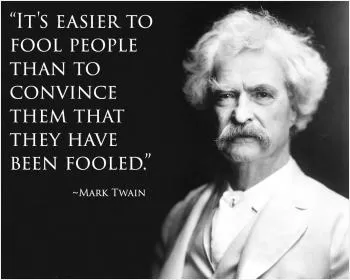He who asks a question is a fool for five minutes; he who does not ask a question remains a fool forever

He who asks a question is a fool for five minutes; he who does not ask a question remains a fool forever
The proverb "He who asks a question is a fool for five minutes; he who does not ask a question remains a fool forever" emphasizes the importance of seeking knowledge and understanding through curiosity and inquiry. It suggests that it is better to ask questions and risk appearing foolish temporarily than to remain ignorant and foolish indefinitely.Asking questions is a fundamental aspect of learning and growth. It shows a willingness to admit one's lack of knowledge and a desire to expand one's understanding. By asking questions, we open ourselves up to new information, perspectives, and ideas that can broaden our horizons and deepen our understanding of the world around us.
On the other hand, choosing not to ask questions can lead to missed opportunities for learning and growth. It can result in a stagnant mindset and a limited understanding of the world. By remaining silent and not seeking clarification or further information, we may continue to hold onto misconceptions or misunderstandings that could easily be corrected through asking questions.
The five minutes of temporary foolishness that comes from asking a question is a small price to pay for the potential knowledge and wisdom gained in return. It is a sign of humility and a willingness to learn from others. By asking questions, we demonstrate a curiosity and openness to new ideas that can lead to personal and intellectual growth.
In contrast, the person who chooses not to ask questions may never have the opportunity to expand their knowledge or challenge their assumptions. They may continue to operate under false beliefs or limited perspectives, ultimately hindering their personal and intellectual development.












 Friendship Quotes
Friendship Quotes Love Quotes
Love Quotes Life Quotes
Life Quotes Funny Quotes
Funny Quotes Motivational Quotes
Motivational Quotes Inspirational Quotes
Inspirational Quotes